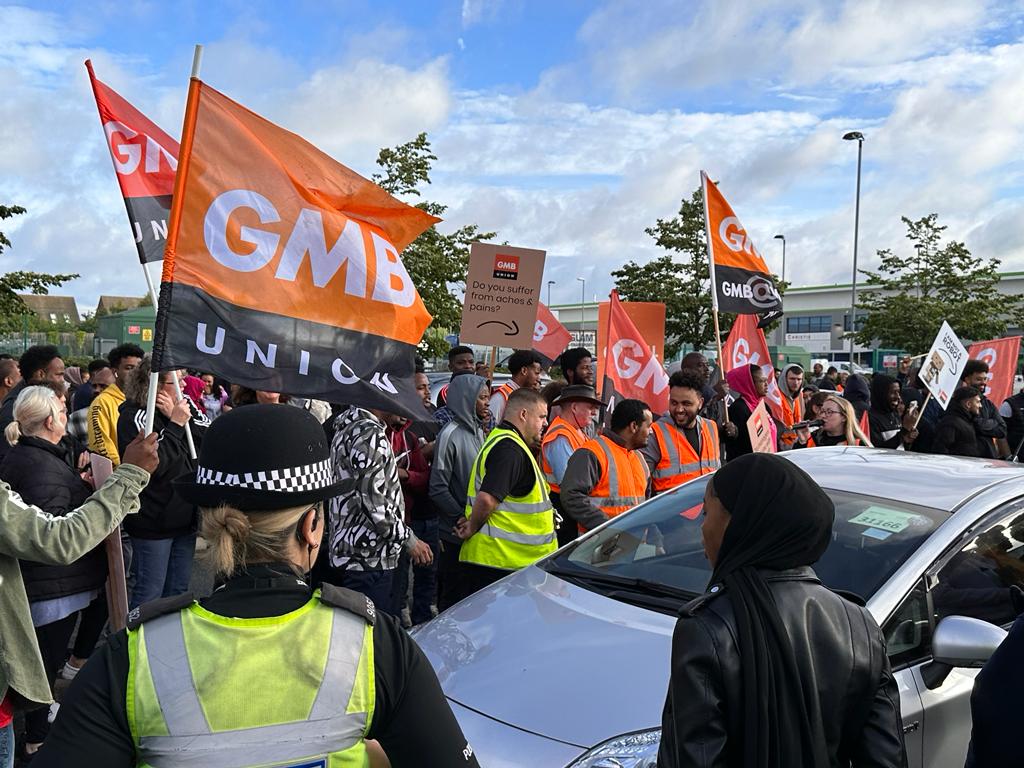Amazon rapidly recruited workers on on temporary contracts to dilute the trade unionist vote, the GMB alleges; the number of employees onsite has surged from 1,440 in December 2022 to more than 3,500.
Company bosses have also erected QR codes in Amazon fulfilment centres which generate an email to the GMB requesting that membership is cancelled. Amazon claim that they “provided information to help” employees leave unions if it was their “own personal choice.”
Individual Amazon employees are allowed to join a union, like any worker in the UK. But a union only gets collective bargaining power when it is legally recognised by a company – and for that recognition to be issued, the union must have the support of 50% of the workforce.
Speaking to the Big Issue before the result, Charles Umney – professor of international work and employment at University of Leeds – said that Amazon’s reported anti-union techniques were often “relentless”.
“It’s an incredibly union-hostile environment,” he said. “Companies can’t publicly say – we don’t want you to join a union. But they use all sorts of measures to get people out of engaging with unions.”
“Firstly, it’s a difficult workforce to unionise; there’s a lot of turnover, and it’s highly pressurised, individualised work. Secondly, Amazon put a lot of work into discouraging organising.”
A spokesperson at Amazon “thanked everyone who voted in the ballot” and denied allegations of union-busting.
“Across Amazon, we place enormous value on engaging directly with our employees and having daily conversations with them. It’s an essential part of our work culture. We value that direct relationship and so do our employees,” they said.
“Throughout the ballot process, attendance at Amazon employee meetings was entirely voluntary. Employees were informed of this when they were invited to a meeting and also at the start of each meeting. The GMB held similar meetings with our employees on site, which were also voluntary.”
On X, Callum Gant – work and technology expert at the University of Essex – described the result as devastating.
“This is gutting – Amazon’s campaign of trade union victimisation has succeeded,” he wrote.
“But the example of Amazon organising in the US shows us that even after defeat in a union election, it is possible and necessary to continue building worker power. This is not the end!”
Do you have a story to tell or opinions to share about this? Get in touch and tell us more. Big Issue exists to give homeless and marginalised people the opportunity to earn an income. To support our work buy a copy of the magazine or get the app from the App Store or Google Play.










